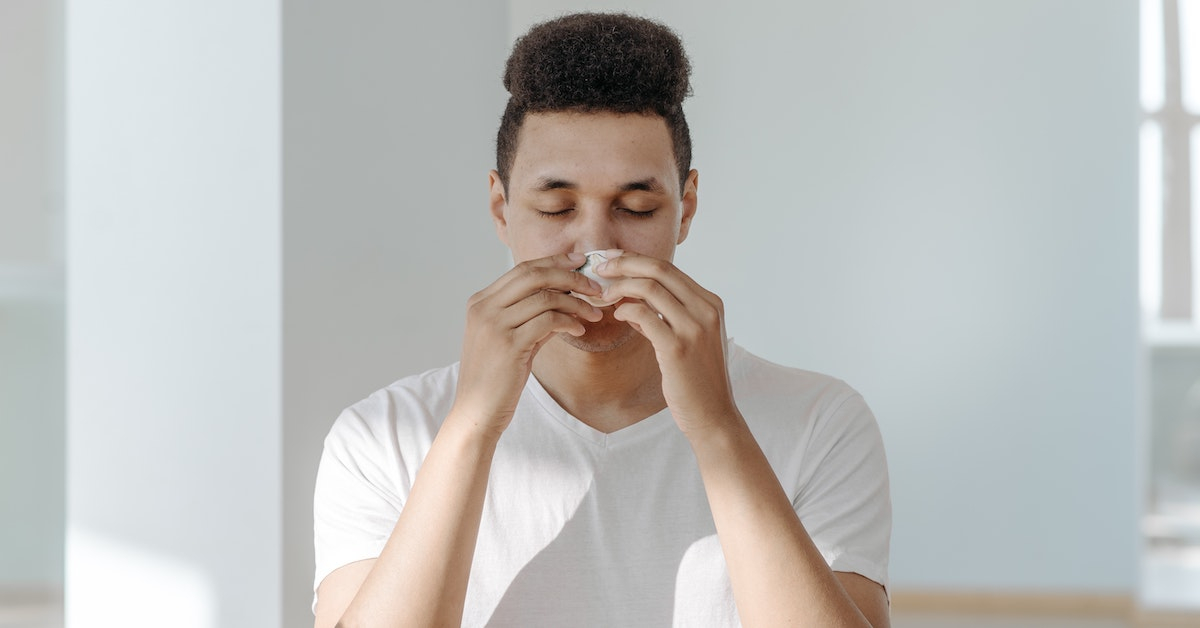Suffer from the sneezes, wheezes, and seasonal sniffles, especially when there’s spring pollen in the air? You’re far from alone; according to Yale Medicine, over 19.2 million adults and 5.2 million children suffer from hay fever (AKA allergic rhinitis) around the United States, the specific seasonal allergy that puts people off from pollen.
While the symptoms of seasonal allergies generally aren’t life-threatening, they can still be extremely detrimental to the sufferer’s quality of life. After all, how can you stay present and concentrate on essential life tasks like work, education, or being there for your loved ones if you’re spending all your time trying to get a runny nose under control?
Even the most benign seasonal allergies can be no joke. Over time these little unpleasant symptoms can add up to immense costs if left unchecked; the financial costs of lost productivity, the social costs of missing important gatherings or functions if you don’t feel well enough to go, and the overall emotional cost of having your overall quality of life considerably diminished.
If you or a loved one is suffering from spring allergies and desperately want to keep them in check, here are some crucial answers to burning questions that are likely on your mind.
If you're ready to see a doctor about spring allergies, you can see an affordable clinician, online, right now at Antidote Health.
Can Spring Allergies Cause Hives?
Allergies can trigger a myriad of different symptoms, almost all of which make for a highly unpleasant ordeal. If you’ve got a bad case of the hay fever that isn’t being treated, here’s what you can expect to have in store:
- Runny nose/postnasal drip
- Watery itchy eyes
- Coughing, sneezing, & wheezing
- Fatigue and tiredness
In addition to those unpleasantries, seasonal allergies can also hit with a one-two insult to injury combo, exacerbating many common unpleasant skin conditions like eczema, or painful welts and hives which can arise as a reaction to exposure to seasonal allergens.
While these symptoms generally aren’t directly “deadly” per se in most instances, they can indirectly lead to deadly consequences if left unchecked, like swelling blocking off crucial airways or eczema opening the door for even deadlier infections. While those occurrences usually happen in the most extreme cases, it’s still important to remain prepared with routine checkups and preventative treatments to nip any further issues in the bud.
How Long Does Spring Allergy Season Last?
Typically, the risk of hay fever can begin to flare up around the early spring months (i.e. March or April), when the world generally starts to spring forward into tree pollen season. Ergo, you can expect tree pollen seasons to continue all the way through the mid-summer - around mid-July, usually.
Keep in mind that the start and end of allergy seasons typically fluctuate year by year, and that these start and end times may vary year by year. Unfortunately, pollen seasons are only slated to grow longer and more intense year by year, with experts like those at Harvard fearing that carbon pollution and climate change will continue to intensify pollen seasons.
More intense seasonal changes mean longer growing seasons for plants that produce pollen. Back in the mid-1990s, researchers (published in The National Institute of Health) projected that pollen counts would double from 2000 to 2040. Over two decades on from the start of that prediction, and our climate seems well on track with meeting their projections, with climate experts now observing significant temperature-related changes in pollen abundance across recent years (see this Lancet journal, for example).
It’s always better to stay safe rather than sorry, and now’s as good a time as any to start protecting yourself and your loved ones from spring allergies.
Do Spring Allergies Make You Tired?
Seasonal allergies of any sort can diminish focus, worsen concentration, and promote tiredness and fatigue. Stuffy sinuses can make it harder to comfortably fall asleep, and release chemicals that induce tiredness and fatigue. On top of all that, your body may be tired out as it works overtime to fend off threats to it’s immune system.
So yes, spring allergies can indeed make you tired. A healthy sleep routine is crucial for maintaining both mental and physical health vitality, so it’s important that you work toward treating your spring allergies now, at the start of the season, before the problem risks snowballing into additional greater problems. If you're currently at that crossroads and unsure what to do, here’s what should be done.
How To Prevent Spring Allergies
As the pollinated spring flowers bloom, here are some potential remedies you should consider trying to keep your seasonal allergies in check:
- Be conscious of pollen counts: Check your local weather forecasts for pollen count concentration. If you must go outside, try to time it when counts are lower.
- Use an air purifier: Air purifiers, particularly those with HEPA filters, work wonders for improving your home’s air quality.
- Clean often: If your purifier isn’t adequately getting the job done, pulling out the vacuum to suck up all your home’s dust and pet dander may do the trick.
- Try medications: From prescriptions through over-the-counter options, there is a world of decongestants, antihistamines, and immunotherapies you can deploy in your fight against spring allergies. You just need to find the right combo that works for you.
- Speak to a doctor: Your primary care physician should be able to offer additional helpful suggestions, and may be able to refer you to a helpful allergist who specializes in treating your symptoms if you feel that would be necessary.
If you’d like to go the telehealth route, whether that means finding an online allergy doctor or a helpful online pharmacy that can deliver decongestants directly to your door, our provider database has got you covered.
We’d recommend signing up for Antidote Health to cover both of those bases, but you can click here to be put in touch with over 200 additional online health resources!

